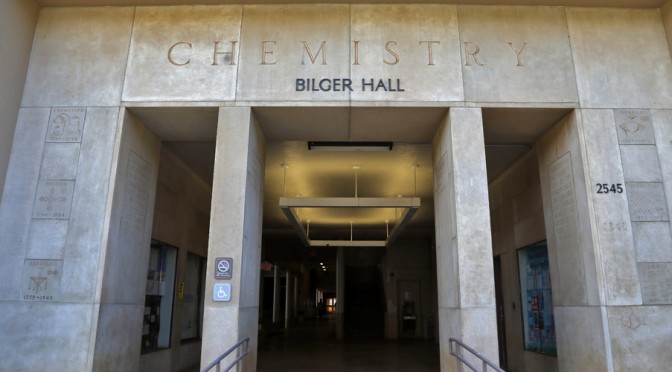Supporting Mathematics in Hawaii
The Department of Mathematics is the only mathematics department in the State of Hawai'i that offers both an extensive undergraduate and graduate program in mathematics.
It is valuable to us to have a flexible source of funding since it makes possible many improvements to our research and teaching which cannot be made within the budget we receive from the Dean. Gifts are especially helpful to our efforts to build morale and a sense of community amongst our math majors and our graduate students.
There are many beneficial uses; we are grateful for support to help provide us with a well-funded program.
Mathematics Department at a Glance
- Department Mission
-
To provide a high-quality mathematics education to majors and prepare them for careers in which mathematical knowledge and analytical skills are in demand; to give advanced mathematical education to Masters and PhD students in a broad variety of fields of specialization; and to offer service courses to students from other departments within the natural sciences, engineering, education, and beyond.
 The following information is mostly from 2011.
The following information is mostly from 2011.
- Number of Students
-
More than 70 declared undergraduate mathematics majors and more than 20 graduate students. There are also 19 students who are working on a minor in mathematics.
In the 2006-2007 academic year, 14 students graduated with a BA or BS degree, six students earned MS degrees, and three were awarded PhDs. That year, including the summer, students registered for about 14,500 credit hours in mathematics courses.
- Degrees Offered
-
The department offers a Bachelor of Arts (BA), a Bachelor of Science (BS), a Masters of Arts (MA), and a doctorate degree (PhD). There is an option for a minor and a variety of dual and concurrent degrees. The department is currently developing a certificate in mathematical biology.
- Faculty
-
As of January 1, 2011, there are 24 tenured or tenure-track faculty members, 25 teaching assistants/SUPER-M fellows. Visiting or non-tenure stream faculty members come on top of these numbers.
- Support
-
Many faculty members receive support from the National Science Foundation (NSF). Up to date information is available in the grants category on the blog.
- Monique Chyba's SUPER-M grant, 2009-2014, supports mathematics education in the state of Hawaii in a big way (see information on the front page).
- Leslie Wilson is the principal investigator for an NSF grant that supports undergraduate research experiences in mathematical biology. 2006-2011.
- Bjørn Kjos-Hanssen's NSF standard grant Computability and Probability, 2009-2012, supports graduate students, postdocs, and undergraduate researchers in an area at the intersection of mathematics and theoretical computer science.
- Erik Guentner received an NSF Faculty Early Career Development (CAREER) Award that, among other activities, supported a distinguished lecture series and international workshops in Hawai'i.
- James B. Nation recently had a scholarship grant that supports a large number of our best undergraduate students and offered them a special lecture series.
- Pavel Guerzhoy, NSF standard grant, Congruences related to modular forms, 2006-2009. Guerzhoy also organizes a summer conference on modular forms sponsored by NSF and the Clay Institute.
- Outreach
-
Individual faculty members interact with the public in many ways, ranging from judging science fairs to organizing mathematics competitions for high school students.
- Unique Features
-
During the regular academic year, all classes are taught by faculty members or visitors who have a PhD and are actively engaged in research. The department has maintained a system in which most classes are taught in small groups of no more than 30 students per section. With a rare exception, this is true for our regular Science-Technology-Engineering- Mathematics (STEM) four semester calculus sequence, our honors calculus courses, and all of our junior and senior classes.
- Tutoring
-
Tutoring is available for pre-calculus and calculus students by qualified mathematics majors free of charge.
- Careers
-
Many undergraduate majors find employment in the financial services industry; others teach high school or attend graduate school either at UH or on the mainland.
Several PhD graduates found positions in one of the other academic institutions in Hawai'i, and some have been successful in academics on the mainland.

